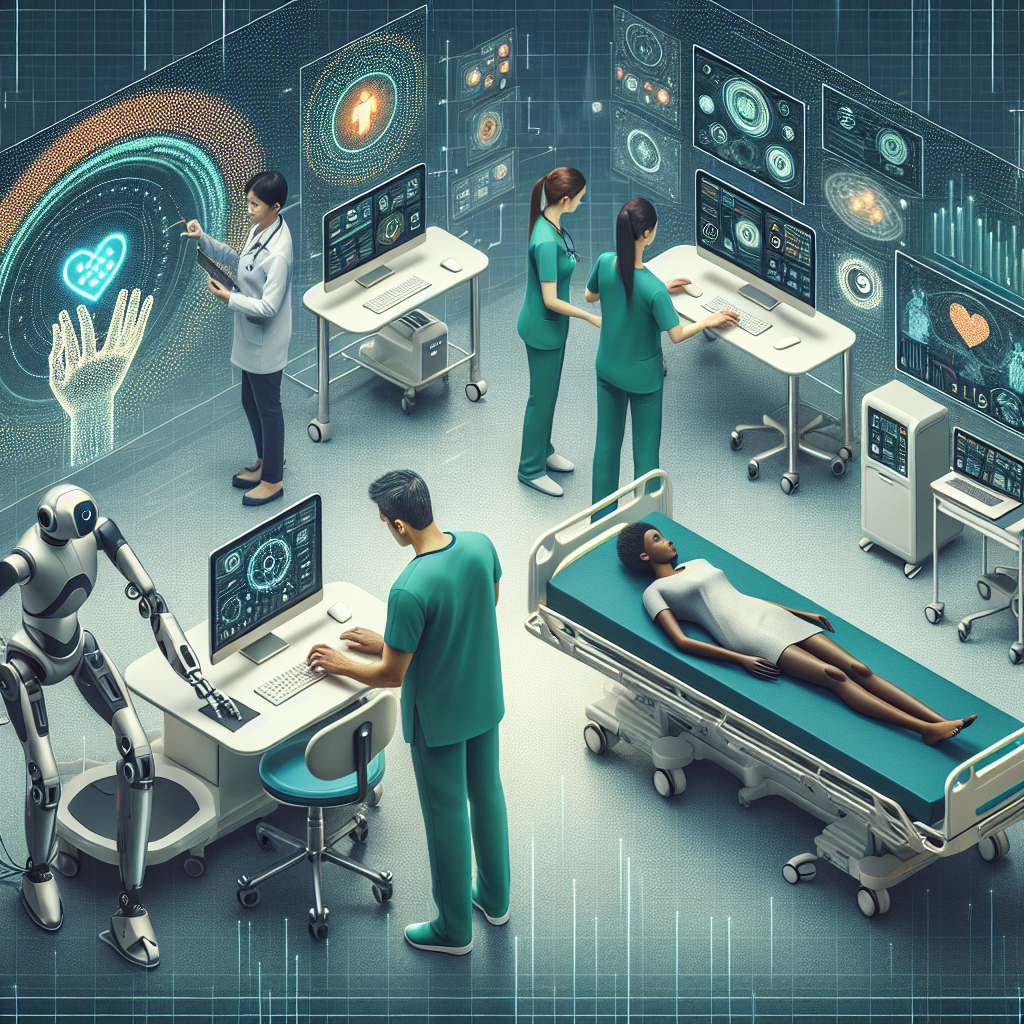Artificial Intelligence (AI) has the potential to revolutionize healthcare by improving patient safety through various applications such as predictive analytics, personalized treatment plans, and real-time monitoring. With the increasing complexity of healthcare systems and the growing volume of patient data, AI can help healthcare providers make more informed decisions, reduce errors, and ultimately save lives.
One of the key benefits of AI in patient safety is its ability to analyze vast amounts of data quickly and accurately. This enables healthcare providers to identify patterns and trends that may not be immediately apparent to the human eye. For example, AI algorithms can analyze patient records, medical images, and genetic data to predict the likelihood of adverse events such as sepsis or heart attacks. By flagging at-risk patients early on, healthcare providers can intervene proactively and prevent complications.
Another way AI enhances patient safety is through personalized treatment plans. AI algorithms can analyze a patient’s unique genetic makeup, medical history, and lifestyle factors to recommend the most effective treatment options. This personalized approach can help minimize the risk of adverse reactions to medications, optimize treatment outcomes, and improve overall patient satisfaction.
Real-time monitoring is another key application of AI in patient safety. By continuously analyzing data from wearable devices, electronic health records, and other sources, AI algorithms can detect subtle changes in a patient’s condition and alert healthcare providers to potential issues. For example, AI-powered monitoring systems can flag abnormal vital signs, detect falls, or predict deteriorations in a patient’s health, allowing for timely interventions and improved outcomes.
Despite the promising benefits of AI in patient safety, there are also challenges and concerns to consider. One of the main challenges is the potential for bias in AI algorithms. If the data used to train AI models is biased or incomplete, the algorithms may produce inaccurate or discriminatory results. To address this issue, healthcare providers must ensure that AI systems are transparent, accountable, and continuously monitored for biases.
Another concern is the ethical implications of using AI in patient care. For example, who is responsible if an AI algorithm makes a wrong diagnosis or treatment recommendation? How can patients trust that their data is being used responsibly and securely? These ethical considerations must be carefully addressed to ensure that AI is used ethically and responsibly in healthcare.
In addition, the implementation of AI in healthcare requires significant investment in infrastructure, training, and integration with existing systems. Healthcare providers must also navigate regulatory requirements, data privacy concerns, and interoperability issues to successfully deploy AI solutions in patient care.
Despite these challenges, the potential benefits of AI in patient safety are undeniable. By harnessing the power of AI to analyze data, personalize treatment plans, and monitor patients in real time, healthcare providers can improve patient outcomes, reduce errors, and enhance overall quality of care.
FAQs:
Q: How can AI improve patient safety in healthcare?
A: AI can improve patient safety in healthcare by analyzing vast amounts of data quickly and accurately, personalizing treatment plans, and monitoring patients in real time to detect potential issues early on.
Q: What are some examples of AI applications in patient safety?
A: Some examples of AI applications in patient safety include predictive analytics for identifying at-risk patients, personalized treatment plans based on genetic data, and real-time monitoring systems for detecting changes in a patient’s condition.
Q: What are the challenges of implementing AI in healthcare?
A: Some challenges of implementing AI in healthcare include bias in AI algorithms, ethical considerations, regulatory requirements, data privacy concerns, and interoperability issues with existing systems.
Q: How can healthcare providers address bias in AI algorithms?
A: Healthcare providers can address bias in AI algorithms by ensuring that the data used to train the algorithms is diverse, representative, and regularly monitored for biases. Transparency, accountability, and fairness should also be prioritized in the development and deployment of AI systems.
Q: What are the ethical implications of using AI in patient care?
A: The ethical implications of using AI in patient care include concerns about accountability, trust, data privacy, and patient autonomy. Healthcare providers must carefully consider these ethical considerations to ensure that AI is used ethically and responsibly in healthcare.

